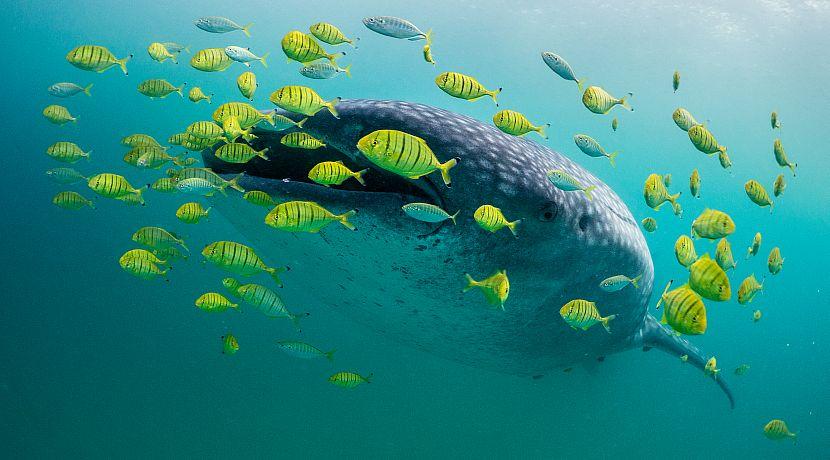August the 30th is a day which belongs to one of the most deceptively named animals in the world, the Whale Shark. This gentle giant isn't a whale as its name implies, but it is in fact the world’s largest fish.
The Whale shark can be found in all of the tropical, warm seas around the world. However, whilst their territory may be vast and wide-spread, their numbers are falling rapidly. Whale Sharks are often hunted for their highly prized fins and meat, and as a result of that these fish are classified as vulnerable.

Similar to human finger prints, Whale Sharks have a unique pattern of stripes and spots on their backs so they can be easily identified. This has led to a new technique being used to identify the Whale Sharks and aide their conservation. Rather than using the tradition “tagging” method, which can cause stress and harm for the sharks, to monitor their movement and behaviours, scientist are now starting to use the unique markings on the shark’s backs to identify them. This means that once the markings on a Whale Shark have been photographed and recorded, they can be identified from anywhere in the world easily and unobtrusively.
Even with this advance in the monitoring methods used for Whale Sharks, there is still no definitive number placed on the amount of Whale Sharks in the wild. Due to their territory reaching across vast expanses of ocean, gathering accurate data is almost impossible to do. One thing we do know about the Whale Shark is that they are becoming increasingly more and more vulnerable to human activities. Even with bans on hunting in countries such as the Philippines and India, many other countries still allow these magnificent giants of the sea to be hunted.
Whale Sharks may be tough and versatile when in their natural surroundings, but they still need protection and our help. Their numbers may not have reached critical levels yet, but if things continue as they are then the Whale Shark will be in danger of becoming another species we have to rush to save. We need to act now.














